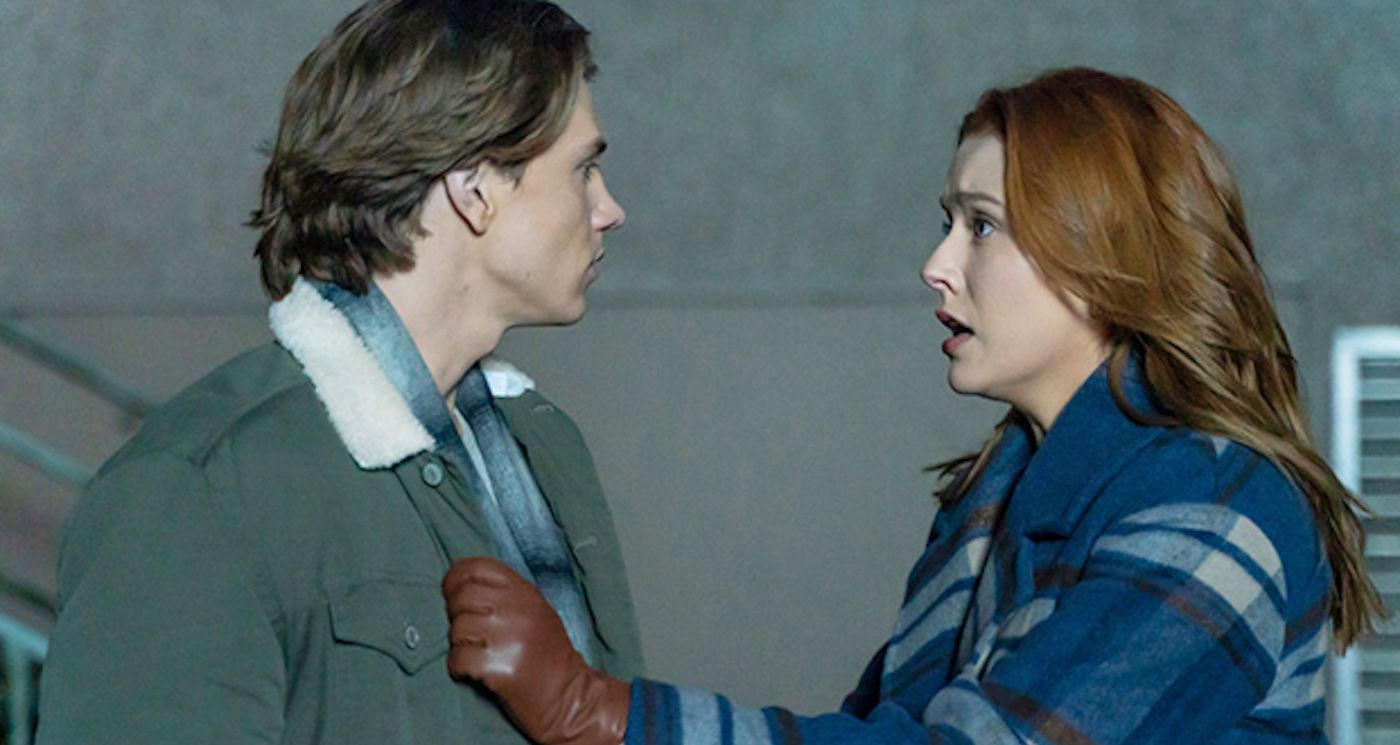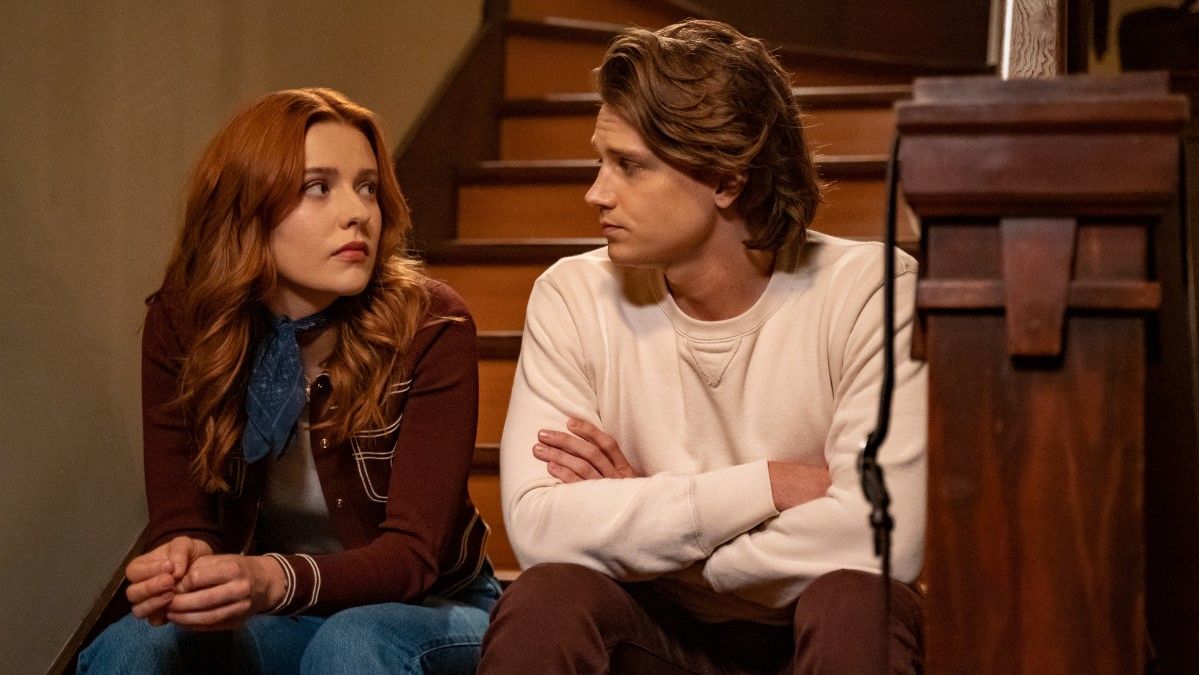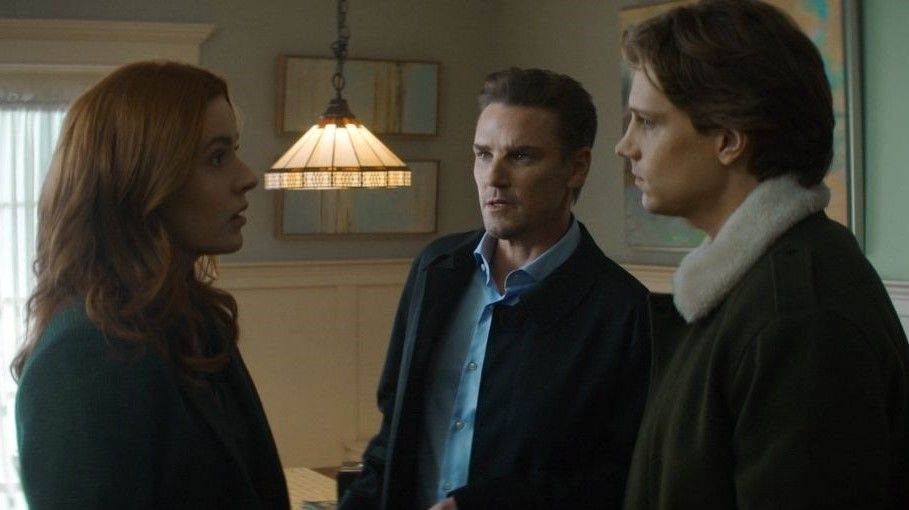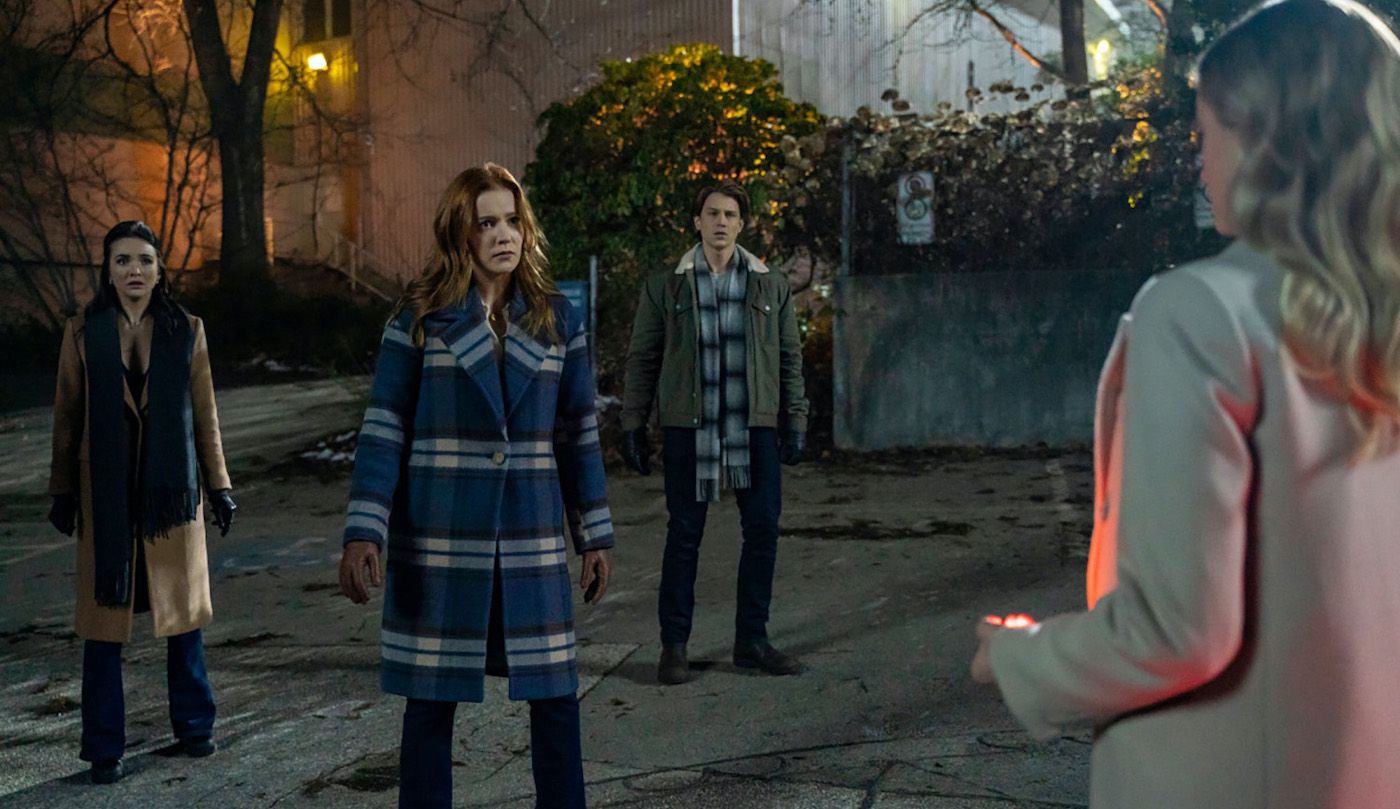Editor’s Note: The following contains spoilers for Season 3 of the CW series, Nancy Drew.
Nancy Drew‘s third season came to a close last spring, and the final episode, “The Ransom of the Forsaken Soul,” did not hold back. The episode sets a new normal for Horseshoe Bay for the green-lighted Season 4 and takes a giant leap forward in the development of Nancy (Kennedy McCann) and Ace’s (Alex Saxon) relationship. The finale seamlessly ties the romantic arc into the main plot of the season, leading to a more cohesive story moving forward, and gives the fans plenty of moments to latch onto while still introducing more drama for the future.
To recap the last few “Nace” developments, the two’s romantic feelings aren’t just recent, they’ve been simmering for quite some time. Nancy realized she had feelings for Ace in the Season 2 finale, and he acknowledged his feelings earlier in the latest season, before confessing how he felt to Nancy in “The Spellbound Juror.” It took a bit for Nancy to process the news, having just begun a relationship with Agent Park (John Harlan Kim), but ultimately she decided to break up with her very nice boyfriend to explore her feelings for Ace.
Things heat up rapidly in the finale when Nancy and Ace’s relationship intertwines with the season’s main plot. After killing Temperance (Bo Martynowska and then Olivia Taylor Dudley), Nancy loses Ryan (Riley Smith) as a consequence of the victory. A month later, Ace is finally able to connect with Nancy, and they finally consummate their feelings and begin a relationship. Shortly after, Ace dies in Nancy’s arms due to a car crash, and Temperance appears and reveals that everything since her “death” was all a premonition of the future. The biggest blow: Temperance places a curse on Ace that will kill him if they ever are together romantically. The caveat — this will only happen if Nancy kills her ancestor.
Nancy wakes up in the moments before she killed Temperance, and decides not to sacrifice her future with Ace, initially. The group runs but as Temperance’s destruction reigns down on Horseshoe Bay, she realizes that she should kill Temperance and sacrifice her relationship with Ace. Nancy kills Temperance, saves Ryan, and then avoids Ace as much as possible, with clear intentions to protect him from the spell, going as far as lying to him about her feelings.
Despite all the juicy content, there was one huge downer in the episode — Nancy’s conversation with her adoptive father Carson (Scott Wolf). As the episode comes to a close, she confides in her father about her heartbreak concerning Ace. While the conversation does end with Carson telling Nancy that she controls her own fate, this conversation can also cast doubt in the audience’s minds about the future of the couple that this episode focuses on, with the mentions of second soulmates and living without one.
However, Nace fans should have nothing to fear. Angst can be joy and anguish for a fan of television’s romantic relationships, especially with a growing trend of characters never getting together, wasting chemistry and so much potential. However, not all cult shows are specifically against their fans, and all evidence points toward Nancy Drew to be one of the lights in the darkness of enticing romantic pairings who were put out too soon.
One of the most popular relationship dynamics is the enemies to lovers trope. Nancy and Ace, however, would be classified as friends to lovers, a dynamic that may be slightly less popular, but still just as gripping. The first season develops them as two people who care for each other in a way that didn’t even approach romance, which makes them all the stronger in the long run. Even early on, Ace understood Nancy in an unspoken way and trusted her perhaps the most out of all of her friends. This makes for a solid foundation that other qualities that give Nancy and Ace a leg up on others to reach that coveted endgame status.
For example, the two are pretty communicative, and when they’re not, it’s usually because a life is at stake. Well, they’re at least communicative for two people in young adulthood. In fact, Ace straight up tells Nancy how he feels about her and gives her the space to process that information. Communication is one of the go-to’s for giving couples drama on CW shows. There’s plenty of room for people to misinterpret actions or words. Nancy and Ace don’t really have a problem telling each other the truth. Their issue is more of their environment and things getting in the way of their feelings. After all, Horseshoe Bay attracts one supernatural disaster after the next.
It’s the fact that Ace was able to leave an impression on Nancy, allowing her to feel him across an alternate dimension. But it’s also the mature and respectful way they treat each other —- with not only unwavering faith, but also respect. Nancy and Ace’s care for each other extends beyond their own happiness to what is best for the other one, even if it can’t be them. The Season 3 finale proves that aspect quite literally. Nancy Drew touches on dynamics outside the more childish behaviors other teen and YA dramas seem to convince audiences are always a part of love.
In fact, after three seasons of mismatched timing and slow-burn development (at least for today’s landscape of TV), Nace’s apparent doomed future is perhaps the best indicator of their eventual relationship. It’s easy enough to leave a few dangling threads behind of possibilities never pursued, but with such a vivid dream sequence and dire consequences to even the smallest of interactions, Nancy Drew has committed to following this popular pairing to its end, whatever that may be. As tumultuous as angst for our favorite characters can be, the Season 3 finale doubles down on the couple. When Nancy and Ace get together now, they won’t just be beating the odds, they’ll be defying a curse, and what says soulmates more than that?













































































